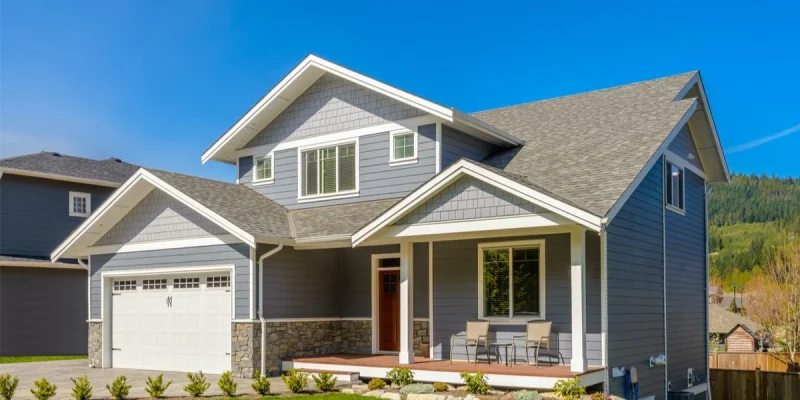Detached Housing Definition: What It Is and Why It’s a Popular Choice

When it comes to choosing a home, the term “detached housing” often comes up as a preferred option for families and individuals seeking privacy, space, and independence. But what exactly does detached housing mean?
In this article, we’ll define detached housing, explore its unique characteristics, and highlight why it remains one of the most desirable housing types for homeowners worldwide. Whether you’re looking to buy, build, or invest, understanding detached housing can help you make an informed decision.
What Is Detached Housing definition?
Detached housing refers to a standalone residential structure that does not share walls, roofs, or foundations with any other property. Each home sits on its own parcel of land, offering complete independence from neighboring properties.
Key Features of Detached Housing:
- No shared walls or structures with adjacent homes.
- Typically includes private outdoor space such as a yard or garden.
- Offers flexibility for renovations or expansions without affecting neighboring properties.
Detached housing is commonly associated with single-family homes, but it can also include luxury estates, cottages, and other standalone residences.
Advantages of Detached Housing
Privacy
One of the biggest draws of detached housing is the privacy it offers. Without shared walls or communal spaces, homeowners enjoy a quieter and more secluded living environment.
Outdoor Space
Detached homes typically come with larger plots of land, providing room for gardens, patios, or play areas for children and pets.
Customizability
Homeowners have greater freedom to modify their property, from adding extensions to landscaping, without needing approval from neighboring property owners.
Soundproof Living
Since detached homes don’t share walls, residents are less likely to be disturbed by noise from neighbors, making it ideal for families or individuals seeking a peaceful atmosphere.
Higher Resale Value
Detached homes often retain their value better than other housing types, making them a sound investment for long-term homeowners.
Detached Housing vs. Other Housing Types
| Aspect | Detached Housing | Semi-Detached Housing | Townhouses or Row Houses |
| Definition | Standalone home with no shared walls. | Shares one wall with a neighboring home. | Shares walls with multiple neighboring homes. |
| Privacy | High | Moderate | Low |
| Outdoor Space | Larger private yard or garden | Smaller yard, typically on one side. | Limited outdoor space, often communal. |
| Customizability | Full control over modifications | Limited modifications due to shared walls. | Often restricted by HOA or community rules. |
| Cost | Higher purchase price and upkeep | More affordable than detached homes. | Often the most affordable option. |
Types of Detached Housing
Single-Family Homes
The most common type of detached housing, single-family homes are designed for one household and typically feature private yards and garages.
Luxury Estates
Larger detached homes with extensive land, high-end finishes, and additional amenities like pools or guest houses.
Cottages
Smaller detached homes, often located in rural or suburban areas, known for their cozy and charming designs.
Bungalows
One-story detached homes that are easy to maintain and often favored by retirees or small families.
Disadvantages of Detached Housing
While detached housing has many advantages, there are some drawbacks to consider:
Higher Costs
Detached homes are typically more expensive to purchase and maintain than other housing types.
Increased Maintenance Responsibility
Homeowners are solely responsible for all maintenance, including the exterior, landscaping, and any structural repairs.
Limited Availability in Urban Areas
In densely populated cities, detached homes are often rare and come with a premium price tag.
Who Should Consider Detached Housing?
- Families: Detached homes offer ample space and privacy, making them ideal for families with children or pets.
- Retirees: Single-story detached homes like bungalows are low-maintenance and provide independence.
- First-Time Buyers: Those looking for long-term investments often gravitate toward detached housing for its resale value.
- Anyone Seeking Privacy: Detached housing is perfect for individuals who prioritize peace and quiet.
Detached Housing Trends
Energy Efficiency
Homebuyers are increasingly seeking detached homes with energy-efficient features like solar panels and smart home technology.
Outdoor Living Spaces
The demand for spacious backyards, outdoor kitchens, and gardens has grown as people prioritize home-based leisure activities.
Suburban Popularity
Detached homes in suburban areas are becoming more desirable due to their affordability compared to urban properties.
Conclusion
Detached housing represents the epitome of privacy, space, and independence in homeownership. Whether you’re looking for a single-family home, a cozy cottage, or a luxury estate, the benefits of detached housing make it an attractive option for a wide range of buyers.
While it may come with higher costs and maintenance responsibilities, the flexibility, peace, and long-term investment potential of a detached home are hard to beat. For those seeking a place to truly call their own, detached housing is an ideal choice. Explore your options today and take the first step toward finding your dream home!
FAQs
1. What is the definition of detached housing?
Detached housing refers to a standalone residential property that does not share walls, roofs, or foundations with neighboring homes.
2. What are the benefits of detached housing?
Detached housing offers privacy, outdoor space, customizability, and soundproof living, making it a popular choice for homeowners.
3. How does detached housing differ from semi-detached housing?
Detached homes do not share any walls with neighboring properties, while semi-detached homes share one wall with an adjacent property.
4. Is detached housing more expensive than other housing types?
Yes, detached homes are typically more expensive due to their larger land size, privacy, and independence.
5. Are detached homes available in urban areas?
While detached homes are more common in suburban and rural areas, they are often limited and more costly in urban locations.
Also read: CPR Finance: Understanding Constant Prepayment Rate in Financial Markets











